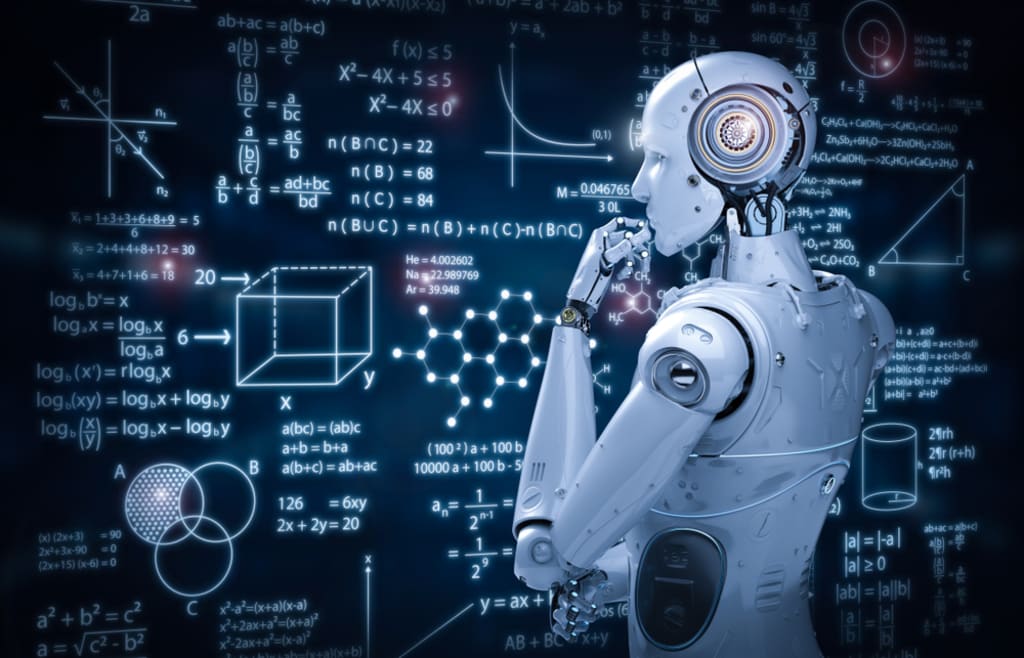
Artificial Intelligence (AI) has revolutionized various industries, and the field of education is no exception. The integration of AI technologies in education has transformed the way we learn and teach, creating new opportunities for students and educators alike. In this article, we will explore the role of AI in education, its applications, benefits, challenges, and the future it holds.
1. Introduction
With the rapid advancements in technology, traditional educational approaches are being reshaped to meet the demands of the digital era. AI, a branch of computer science, enables machines to perform tasks that typically require human intelligence. In the context of education, AI can analyze data, recognize patterns, and make informed decisions to enhance the learning experience.
2. Understanding Artificial Intelligence (AI) in Education
2.1 Definition of AI in Education
AI in education refers to the utilization of intelligent technologies to enhance teaching and learning processes. It involves the application of machine learning, natural language processing, and other AI techniques to analyze data, provide personalized feedback, and create adaptive learning environments.
2.2 Advantages of AI in Education
The integration of AI in education offers several advantages. Firstly, it enables personalized learning, where students can receive customized content and support based on their individual needs and learning styles. This adaptive approach helps students grasp concepts more effectively and at their own pace.
Moreover, AI-powered intelligent tutoring systems provide real-time feedback and assistance, allowing students to practice and refine their skills. These systems can identify areas of improvement and recommend appropriate learning resources, helping students achieve better learning outcomes.
3. AI Applications in Education
3.1 Personalized Learning
One of the significant applications of AI in education is personalized learning. AI algorithms can analyze students' performance data, identify their strengths and weaknesses, and tailor educational content accordingly. This personalized approach promotes student engagement, motivation, and retention.
3.2 Intelligent Tutoring Systems
Intelligent tutoring systems leverage AI to provide personalized guidance and support to students. These systems can simulate a one-on-one tutoring experience by adapting to individual learning styles, tracking progress, and delivering targeted feedback. Intelligent tutoring systems are particularly beneficial for complex subjects, such as mathematics or foreign languages.
3.3 Virtual Reality (VR) and Augmented Reality (AR)
AI combined with virtual reality (VR) and augmented reality (AR) technologies has opened new horizons in education. VR and AR enable immersive and interactive learning experiences, allowing students to explore virtual environments and visualize complex concepts such as scientific simulations or historical events. AI algorithms can enhance these experiences by providing real-time feedback, adapting the virtual environment based on student interactions, and creating engaging learning scenarios.
3.4 Data Analysis and Predictive Analytics
AI enables the analysis of large volumes of educational data to derive meaningful insights. By collecting and analyzing data on student performance, engagement, and behavior, educators can identify trends, patterns, and potential areas of improvement. Predictive analytics can help in early detection of learning difficulties, enabling timely interventions and personalized support.
4. Benefits of AI in Education
The integration of AI in education brings forth numerous benefits for students, educators, and institutions.
4.1 Improved Learning Outcomes
AI-powered personalized learning helps students acquire knowledge and skills more efficiently. By tailoring educational content and providing individualized feedback, AI fosters a deeper understanding of the subject matter. Students can progress at their own pace, resulting in improved learning outcomes and higher academic achievements.
4.2 Enhanced Teaching Methods
AI technologies assist educators in delivering effective instruction. Intelligent tutoring systems offer personalized guidance, freeing up teachers' time to focus on individualized support and mentorship. AI-powered tools can automate administrative tasks, such as grading and assessment, allowing educators to allocate more time for instruction and student engagement.
4.3 Time and Cost Efficiency
AI in education streamlines processes and reduces manual workload. Automated grading systems save time for educators, enabling them to provide timely feedback to students. Additionally, AI-powered virtual assistants can handle routine administrative tasks, such as scheduling and answering frequently asked questions. These efficiencies contribute to cost savings and enable educators to allocate resources more effectively.
5. Challenges and Concerns
While AI offers significant potential in education, several challenges and concerns need to be addressed.
5.1 Data Privacy and Security
The use of AI in education involves the collection and analysis of vast amounts of student data. It is crucial to ensure the privacy and security of this data to maintain student confidentiality and comply with data protection regulations. Institutions must implement robust security measures and obtain appropriate consent from students and parents for data collection and usage.
5.2 Ethical Considerations
AI technologies raise ethical considerations in education. For example, there is a concern that AI algorithms may reinforce existing biases or inequalities. It is essential to develop AI systems that are transparent, accountable, and fair, ensuring equal opportunities for all students.
5.3 Teacher-Student Relationship
The introduction of AI technologies in the classroom can impact the teacher-student relationship. Some may worry that increased reliance on AI could diminish the human connection between educators and students. It is crucial to strike a balance, leveraging AI as a supportive tool while maintaining the essential role of teachers in providing mentorship, guidance, and emotional support.
6. Future of AI in Education
The future of AI in education holds immense potential for further transformation.
6.1 AI-driven Curriculum Design
AI can contribute to the development of adaptive curricula that cater to the diverse needs of students. By analyzing data on student performance and learning preferences, AI algorithms can suggest personalized learning pathways and recommend suitable resources to enhance student engagement and success.
6.2 Adaptive Assessments
AI-powered adaptive assessments can revolutionize traditional testing methods. These assessments can dynamically adjust the difficulty level and content based on students' knowledge and skills, providing more accurate measurements of individual progress and enabling targeted interventions.
6.3 Intelligent Virtual Assistants
Intelligent virtual assistants, powered by AI, can serve as learning companions for students. These assistants can provide instant feedback, answer questions, and guide students through the learning process. They can also offer personalized recommendations for further study or additional resources, creating a seamless and interactive learning experience.
7. Conclusion
Artificial Intelligence has brought about significant transformations in education, empowering students, educators, and institutions. The integration of AI technologies enables personalized learning, enhances teaching methods, and improves learning outcomes. However, it is essential to address challenges such as data privacy, ethical considerations, and maintaining the teacher-student relationship. As we move forward, the future of AI in education holds promise with AI-driven curriculum design, adaptive assessments, and intelligent virtual assistants leading the way.
In conclusion, Artificial Intelligence in education is revolutionizing the learning experience in the digital era. Through personalized learning, intelligent tutoring systems, VR/AR, and data analysis, AI offers numerous benefits such as improved learning outcomes, enhanced teaching methods, and time/cost efficiency. However, it is crucial to address challenges related to data privacy, ethics, and maintaining human interaction in the educational process. As we look ahead, AI-driven curriculum design, adaptive assessments, and intelligent virtual assistants will shape the future of education, providing tailored and engaging experiences for students.
8. Frequently Asked Questions (FAQs)
Q: How does AI impact student engagement?
A: AI enhances student engagement by providing personalized learning experiences, adapting content to individual needs, and offering real-time feedback and assistance.
Q: Can AI replace human teachers?
A: No, AI cannot replace human teachers. While AI can support and augment teaching, the human element of guidance, mentorship, and emotional support remains essential.
Q: What are the potential risks of using AI in education?
A: Potential risks include data privacy and security concerns, biases in AI algorithms, and the need for ethical considerations to ensure fairness and equal opportunities for all students.
Q: Are there any ethical concerns associated with AI in education?
A: Yes, ethical concerns include the potential reinforcement of biases, lack of transparency in AI algorithms, and the need to ensure AI systems prioritize student well-being and equitable access to education.
Q: How can AI support students with special needs?
A: AI can provide personalized interventions and accommodations for students with special needs, offering tailored learning experiences, adaptive assessments, and assistive technologies to enhance their educational journey.
About the Creator
Aditi
I Love to Write, I hope you love to read






Comments
There are no comments for this story
Be the first to respond and start the conversation.